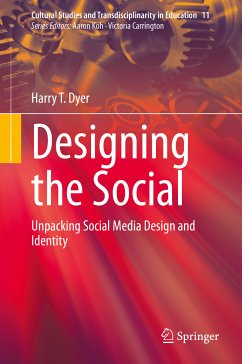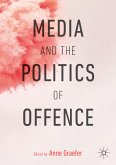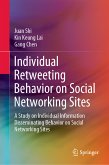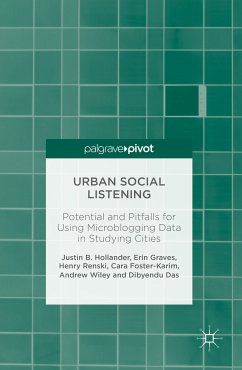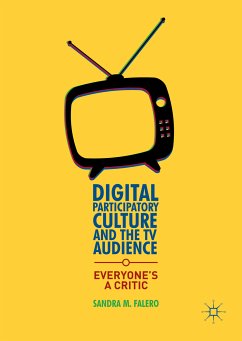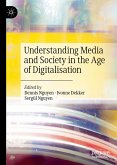This book uses data collected from in-depth interviews with young people over the course of a year to explore the complex role of social media in their lives, and the part it plays in shaping how they understand and present their identity to a broad public on a wide array of platforms. Using this data, the book proposes and develops a new theoretical framework for understanding identity performances. Comic Theory, detailed in this book, centres on a consideration of the role of social media design in shaping identity, and explores the ways in which socio-culturally grounded users engage in acts of compromise, novelty, and negotiation with social media designs and digital technologies to produce unique identity performances.
Positioned within the field of educational research, this book overtly challenges assumptions and myths about the internet as a neutral source of knowledge, instead exploring the way in which designs and technologies shape who weinteract with and how we understand what it is to be social. Moving beyond the over-used 'digital natives' paradigm, this book makes a clear case that educators and education researchers need to move beyond a focus on coding and digital skills alone, highlighting the pressing need to take explicit account of the overlaps between digital technology, culture, and education.
"Designing the Social: Unpacking Social Media Design and Identity takes seriously how young people enact social media as a part of their everyday in lived, highly eclectic ways. This is the best kind of online micro-ethnographic work because it is attentive to and respectful about the ways that young people live through social media in intellectual, relational, emotional, playful, and activist ways. Coming to grips with socially mediated worlds is not for the faint of heart; it demands careful attention and close listening to messages across quite distinct mediated channels from tweets, YTing, to IGing. Full of resonating stories and quirky practices, Dyer's book stretches and finesses our understandings about social media without rushing it, giving young people and their chosen social media outlets the attention and acknowledgements that they deserve." Jennifer Rowsell, Professor of Literacies and Social Innovation, University of Bristol
Dieser Download kann aus rechtlichen Gründen nur mit Rechnungsadresse in A, B, BG, CY, CZ, D, DK, EW, E, FIN, F, GR, HR, H, IRL, I, LT, L, LR, M, NL, PL, P, R, S, SLO, SK ausgeliefert werden.
Es gelten unsere Allgemeinen Geschäftsbedingungen: www.buecher.de/agb
Impressum
www.buecher.de ist ein Internetauftritt der buecher.de internetstores GmbH
Geschäftsführung: Monica Sawhney | Roland Kölbl | Günter Hilger
Sitz der Gesellschaft: Batheyer Straße 115 - 117, 58099 Hagen
Postanschrift: Bürgermeister-Wegele-Str. 12, 86167 Augsburg
Amtsgericht Hagen HRB 13257
Steuernummer: 321/5800/1497
USt-IdNr: DE450055826
Bitte wählen Sie Ihr Anliegen aus.
Rechnungen
Retourenschein anfordern
Bestellstatus
Storno

